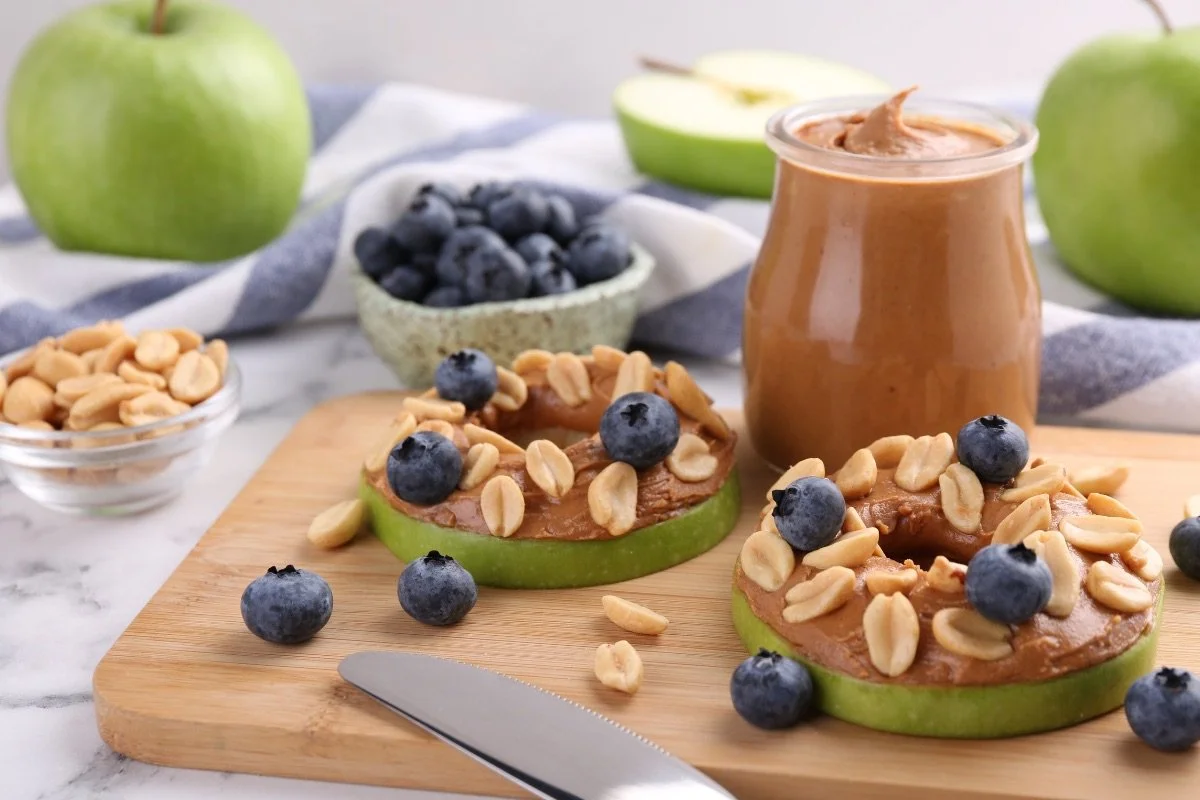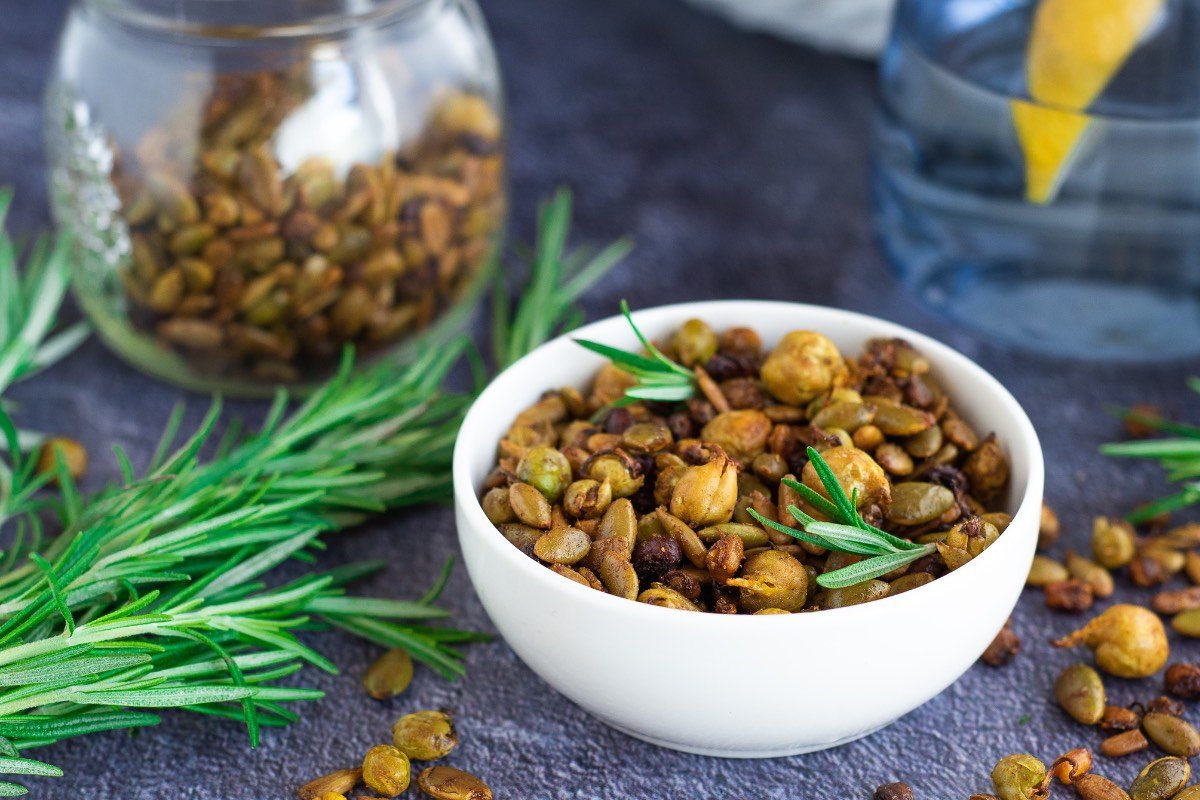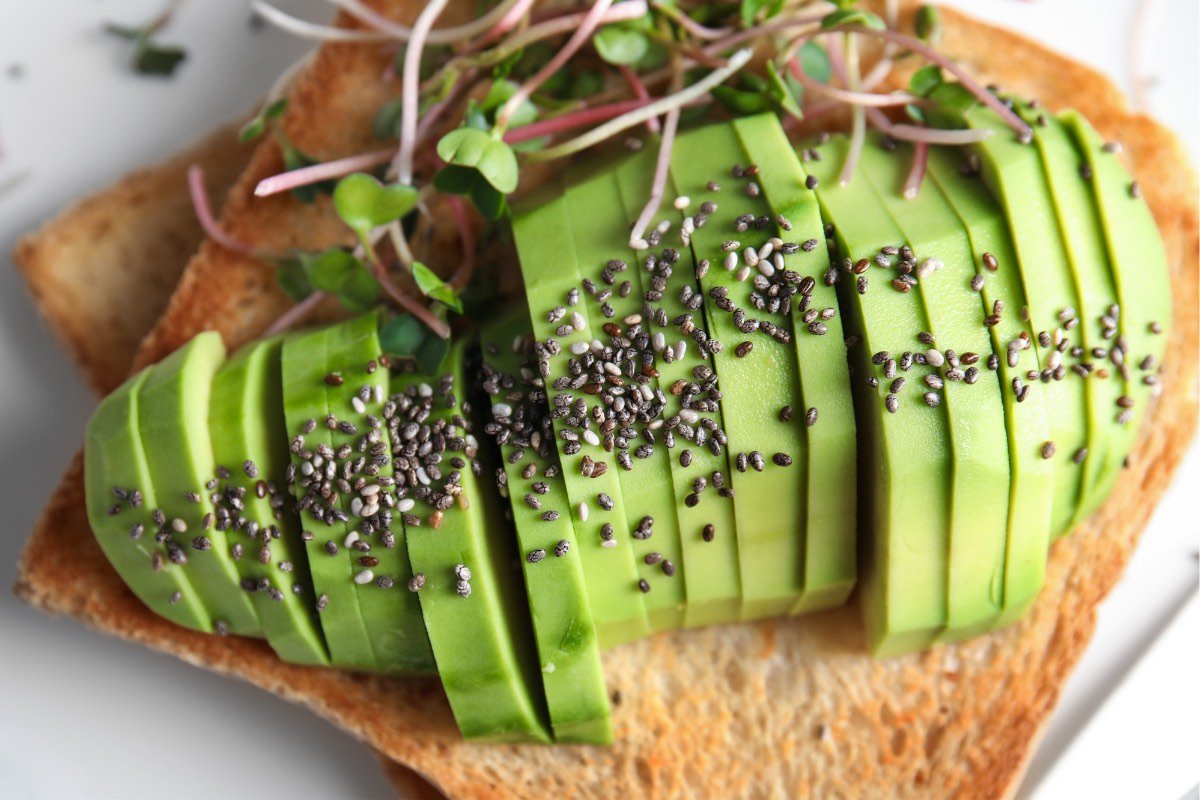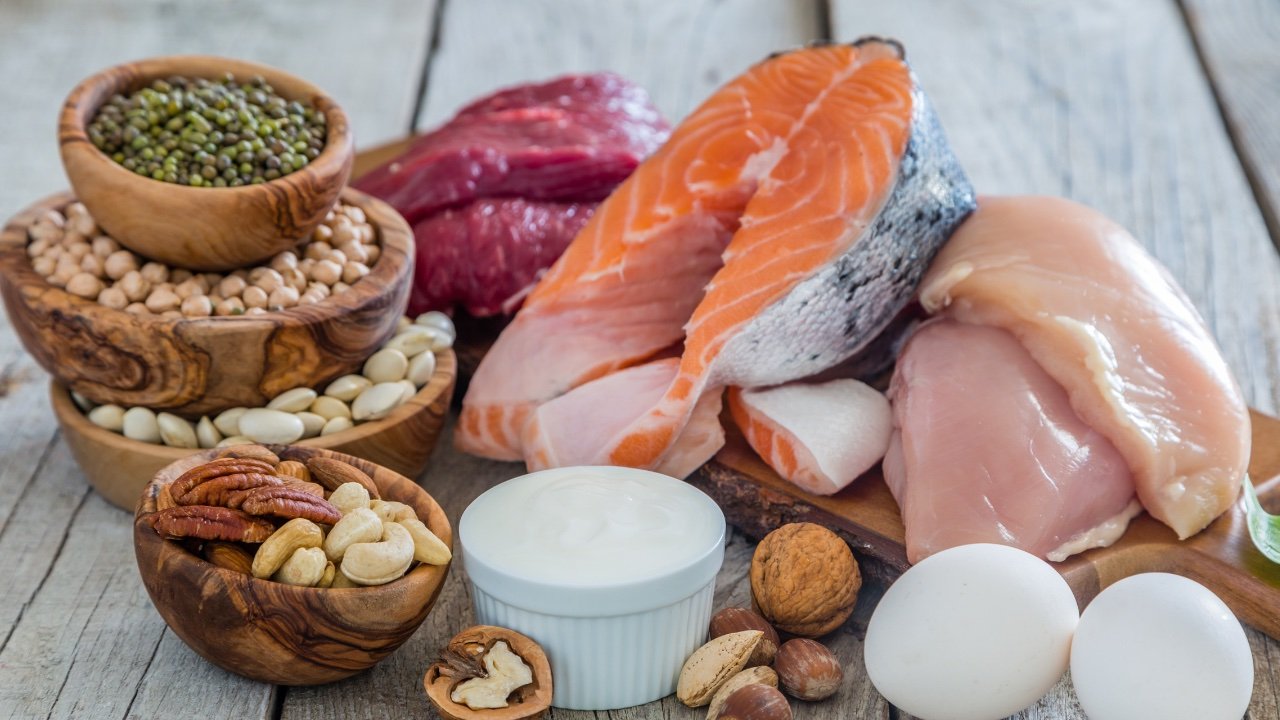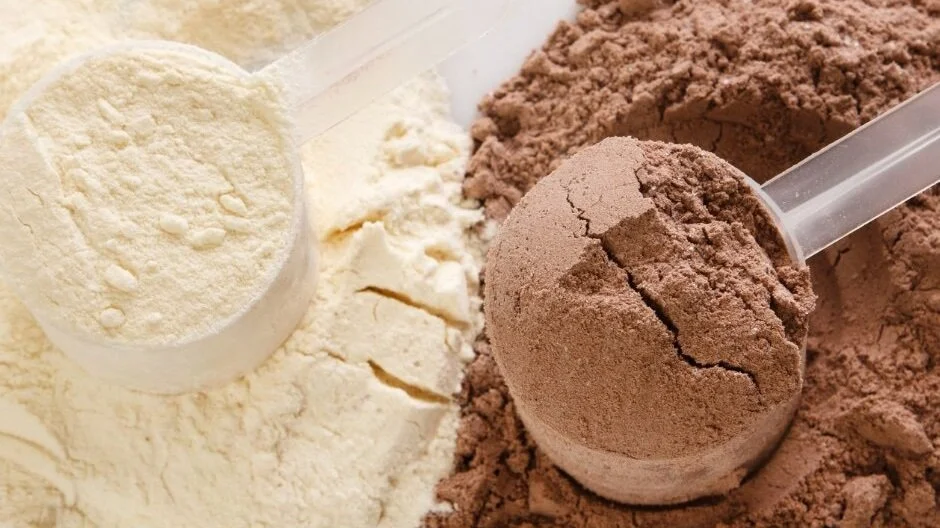30 Healthy Snacks for Gestational Diabetes
Snacks often get a bad rap, but snacking plays an important role in managing gestational diabetes and keeping blood glucose levels steady.
Snacks can also help to keep you satisfied and meet your additional nutrient needs during pregnancy.
But the key is choosing the right types of snacks, which can be easier said than done!
Read on for my tips on healthy snacking and my pick of the best snacks for gestational diabetes.
Healthy snacking with gestational diabetes
One of the most important parts of gestational diabetes management is a nutritious, balanced diet that includes an appropriate amount of carbohydrates.
Snacks are a great opportunity to top up your calorie and nutrient intake and can help fill the gaps for certain nutrients you might otherwise fall short on, like fiber and calcium for example.
But it’s important to choose the right types of snacks, ones that are nutrient-dense while keeping your BGLs within your target range.
How to build balanced snacks for gestational diabetes
Choosing snacks that include a combination of carbohydrates, protein, healthy fats and fiber is the best way to keep blood sugar levels steady while keeping you satisfied between meals and providing a range of essential nutrients for you and your baby.
Including a source of protein such as eggs, nuts and seeds or dairy products like milk and yogurt helps to fill you up and keep blood glucose levels steady.
Fats have a similar effect in slowing down the rate of digestion, helping to keep blood sugar levels more steady. Healthy fats such as nuts, seeds and avocado make a great addition to snacks.
Should you choose low-carb snacks for gestational diabetes?
While carbohydrates cause blood glucose levels to rise, it’s important to eat enough carbohydrate-containing foods to meet your energy and nutrient needs and those of your baby.
Restricting carbohydrate intake too much during pregnancy has been found to increase the risk of micronutrient deficiency.
Keeping the carb content of your snacks to a moderate amount and adding a source of protein and/or healthy fat helps to slow down the release of carbohydrates into your bloodstream and blunt the rise in blood sugar levels.
Choosing the right type of carbohydrate
It’s not just the amount of carbohydrate that’s important when it comes to managing gestational diabetes, the type of carbohydrate is just as important.
Carbohydrate foods such as white bread, crackers, biscuits, cakes, soft drinks and sweets cause a rapid increase in blood glucose levels and offer little nutritional value while being high in saturated fat and/or sugar.
On the other hand, carbohydrate foods such as whole grains, legumes, fruit, milk and yogurt cause a more gradual increase in blood glucose levels and also offer a range of nutrients.
These types of carbohydrate foods can cause a rapid spike in blood glucose levels
Timing of snacks
One of the keys to healthy snacking with gestational diabetes is timing.
Snacks need to be adequately spaced between meals to keep blood sugar levels steady. Eating too regularly can result in blood sugar levels being too high.
For most women with gestational diabetes, 2-3 snacks spread across the day are generally recommended in addition to regular meals.
This helps to keep you satisfied while avoiding too much carbohydrate at one time.
This might look like one mid-morning snack, one mid-afternoon snack and one bedtime snack, depending on your individual meal and snack plan.
Tips for healthy snacking with gestational diabetes
Go for nutrient-dense snacks
Snacks are a great opportunity to get some extra nutrients such as protein, fibre, vitamins and minerals.
And because it can be challenging to meet your nutrition requirements during pregnancy, it’s a good idea to make the most of this opportunity!
We often think of snacks as being foods such as crackers or sweets, but there’s no reason snacks can’t be just as nutritious as your meals.
Go for options that include some of the following - fruit and vegetables, whole grains, nuts and seeds, legumes, lean protein, and dairy or alternatives.
If that sounds difficult, just check out some of the options below!
Combine carbs with protein and healthy fats
Including a source of protein and or/fats in snacks along with carbohydrate helps to reduce the spike in BGLs.
Foods such as nuts, seeds, eggs, avocado and dairy products like yogurt help to fill you up and keep blood glucose levels steady while also adding valuable nutrients to your diet.
Portion control
Pay close attention to portion sizes when snacking. Eating large portions, even if they’re nutritious foods, can still impact blood sugar levels.
Go for smaller, more frequent snacks throughout the day to help keep blood sugar levels stable.
Limit added sugars
Snacks with a lot of added sugar can spike blood glucose levels and often have little nutritional value.
Instead, go for snacks with minimal added sugar.
If you’re buying packaged snacks, check the nutrition information panel on the label and choose snacks with less than 5g of added sugar per 100g.
Have some ‘on the go’ snacks available
When you’re out and about you still need to be eating regularly, and often the options available from cafes and convenience stores aren’t great.
So make sure you have some snack options on hand that you can throw into your bag before you head out the door - small boxes or packets of nuts with a piece of fruit, roasted chickpeas, and low-sugar protein or nut bars are all good options to grab and go.
Snack mindfully
For maximum satisfaction, try to get in the habit of mindful eating while you’re snacking.
Snacking is too often something that we do on the run or while doing something else, leaving us unsatisfied and sometimes barely even registering that we’ve eaten something.
Use your snack time as an opportunity to slow down for a few minutes, focus just on the food you’re eating and think about how it tastes, smells and feels in your mouth.
Savour every bite and chances are you’ll find your snack a whole lot more satisfying!
Test and learn
I might sound like a broken record on this one, but as every woman is different, so are the effects of different foods on your blood glucose levels.
You won’t know what a particular food does to your BGLs until you try it, so test out a new snack before giving it a regular spot on your meal plan.
30 Healthy Snacks for Gestational Diabetes
1. Apple slices with nut butter
A great balance of protein, carbs, healthy fats and fiber to balance blood glucose levels and keep you satisfied.
Any nut butter is fine - peanut, almond, cashew - take your pick!
2. Berries and yoghurt
Quick, delicious and nutritious, it’s hard to beat berries and yogurt and berries for an easy snack. High in protein and calcium thanks to the yogurt, and fiber and antioxidants from the berries, this one ticks a lot of boxes.
Go for a plain Greek yogurt or one with no added sugar or sweeteners.
3. Cheese and wholegrain crackers
Good old cheddar cheese and whole grain crackers are a good option if you’re feeling a little queasy, and they offer plenty of nutrients such as low GI carbs, protein, calcium and fiber.
4. Trail mix
A combination of nuts, seeds and dried fruit, trail mix is super nutritious and satisfying and makes a great on-the-go snack.
5. Hard boiled eggs
I recommend having eggs in high rotation in your pregnancy diet as they’re a great source of protein, iron and B12 and also the richest source of choline, a nutrient essential for brain development in babies which most pregnant women don’t get enough of.
Hard-boiled eggs make a convenient snack to keep in the fridge and can be combined with a piece of fruit or a slice of wholegrain toast for a good balance of protein and carbs.
6. Smoothie
Made with milk, yogurt, fruit and even some veg if you fancy it, smoothies provide protein, fiber, antioxidants and calcium.
Frozen banana, peanut butter, milk and yogurt make a delicious and very nutritious smoothie. If you want to bump up the nutrient density even more, add some spinach, chia seeds or avocado.
7. Fruit + nuts
A piece of fruit and a handful of nuts is hard to beat as a snack - easy and convenient as well as super nutritious.
Keep some little portion-packed boxes or bags of nuts handy to grab when you need a little top-up between meals.
8. Wholegrain toast with almond butter
Protein, iron, low GI carbs, fiber, choline, healthy fats – tick! Snacks don’t get much easier or more nutritious than this.
9. Roasted chickpeas
High in protein and fiber, with moderate carbs, roasted chickpeas make a great alternative to chips if you’ve got a craving for something salty and crunchy.
Look for small single-serve packets for a great ‘on the go’ snack option.
Legumes are an excellent source of low GI carbohydrates, protein and fiber and are also a source of iron, choline and magnesium.
10. Cottage cheese with fruit
Cottage cheese is an excellent source of protein and calcium and goes well with fruit such as bananas, peaches, pears or berries for a simple snack.
Go for store-bought cottage cheese which is pasteurized and sealed, then store in the fridge and eat within 2 days of opening.
11. Fruit and yogurt parfait
Layer Greek yogurt with fresh berries and a sprinkle of nuts for a protein-packed, satisfying snack.
12. Celery sticks with peanut butter
One of my favourite snacks of all time!
Channel your inner child and add a few sultanas or currants on top for cute ‘ants on a log’.
13. Popcorn
Small bags of popcorn are satisfying, nutritious and convenient.
Go for plain, salted popcorn rather than butter popcorn and add a small handful of nuts or roasted pumpkin seeds for protein and healthy fats to help stabilize blood glucose levels.
14. Chia seed pudding
Chia seeds are full of protein, fiber, iron and omega-3 fatty acids, all important nutrients during pregnancy.
And because they swell up to over 10 times their size when mixed with liquid, they make a delicious and super easy ‘pudding’.
Just mix a tablespoon of chia seeds with 1/2 cup of milk of your choice, add a dash of vanilla extract and a little maple syrup or honey if you like, then give it a good stir and leave it in the fridge to set overnight. Then top with berries and chopped nuts and it’s ready to go!
15. Bliss balls or energy bites
A combination of nuts, seeds, dried fruit and oats, bliss balls can be high in carbohydrates but a small serving can be a nutritious and satisfying snack when you want something sweet.
Try this recipe for Date Bliss Balls or this one for Salted Peanut Butter Pretzel Energy Balls
16. Mini wrap
A small wholegrain wrap with fillings such as lean protein (think chicken or turkey), a little cheese and some salad can be a great snack if you need something more substantial.
17. Nut bar
Nuts are incredibly nutritious and full of protein, healthy fats and fiber, making them a great snack option for gestational diabetes.
Nut bars can be a convenient snack to pop in your bag or the car for on-the-go snacks. Go for options that are low in sugar (ideally with less than 15g sugar per 100g).
18. Small bowl of wholegrain cereal
Cereal doesn’t just have to be for breakfast, it can also make a nutritious and easy snack!
Go for a whole grain, low-sugar cereal and serve it with some milk and/or yogurt for extra protein.
19. Apple ‘donuts’
OK, so before you get too excited, I’m not talking about actual donuts here!
These are basically the same as apple slices with nut butter - they just look a lot fancier (see picture below).
Just core an apple, slice it up, spread it with nut butter or cream cheese and sprinkle with a little something delicious like chopped nuts, grated chocolate or granola.
20. Wholegrain rice thins with cottage cheese
Keep a bag of wholegrain rice thins in your pantry to pair with toppings such as cottage cheese or nut butter for quick and easy snacks.
Once again, go for store-bought cottage cheese which is pasteurized and sealed, then store it in the fridge and eat it within 2 days of opening.
21. Corn thins with peanut butter and banana
One of my personal favorites, I love the combination of salty PB and sweet banana slices, so delicious!
22. Guacamole
It’s hard to beat guacamole as a tasty and satisfying snack and it’s also a great option for entertaining.
Try making your own guacamole if you can - it tastes so much better and is generally lower in sugar compared to store-bought varieties.
Instead of traditional corn chips, serve it with some whole grain or seeded crackers.
23. Cheese stick + piece of fruit
Cheese is an excellent snack to bump up your protein and calcium intake - both very important nutrients during pregnancy.
And paired with a piece of fruit, you’ve got a quick, easy and balanced snack.
24. Frozen yogurt bark
If you’re looking for something a little fancier, try frozen yogurt bark - it’s so simple to make and you can add whatever toppings you like - nuts, seeds, coconut, dried fruit, freeze-dried fruit or even a few chocolate chips.
Try this frozen yogurt bark recipe.
25. Wholegrain mini muffins
These can be difficult to find in a store, so might be something you’ll need to make yourself, but the good news is one batch can go a long way!
Try using wholemeal flour, oats and fruit for sweetness - like in this recipe for banana blueberry and chia muffins.
26. Low-sugar protein bar
Protein bars can be a convenient and filling snack on the go.
Check the nutrition information on the packet and aim for bars with less than 15g sugar per 100g.
27. Roasted edamame beans
Edamame beans (soybeans) are little nutrition powerhouses, full of protein, fiber and iron.
And they’re incredibly delicious too!
Keep a bag of these in your handbag for when you're out and about.
28. Avocado toast with chia seeds
It’s hard to beat avocado on toast for a delicious and nutritious snack.
Go for whole grain toast and sprinkle with some chia seeds for extra healthy fats, iron and calcium and a little salt and pepper for extra flavour.
29. Mini Frittatas
Mini frittatas are a great meal or snack option that can be made in batches are an easy way to increase your egg intake during pregnancy.
You can add whichever vegetables you like - spinach, capsicum, tomato, mushrooms, asparagus, corn and zucchini all work well. Try this recipe
Including plenty of sweet potato or corn is a good way to add carbohydrates, or alternatively, serve them with a piece of fruit to make a balanced snack.
30. Apple slices with cheese
Don’t knock it til you’ve tried it! It might sound a bit weird, but this is a surprisingly delicious combination - and ticks a lot of nutrition boxes too (like protein, fiber and calcium).
I hope these ideas give you some delicious and nutritious snack options to nourish both you and your baby and help make managing gestational diabetes a little easier.
Remember, as everyone is different, make sure you discuss your individual meal and snack requirements with a dietitian.
Need breakfast ideas? Check out my 25 Healthy Breakfast Ideas for Gestational Diabetes
Looking for something sweet? Here are my 15 Delicious Desserts for Gestational Diabetes (Blood Sugar Friendly!)

